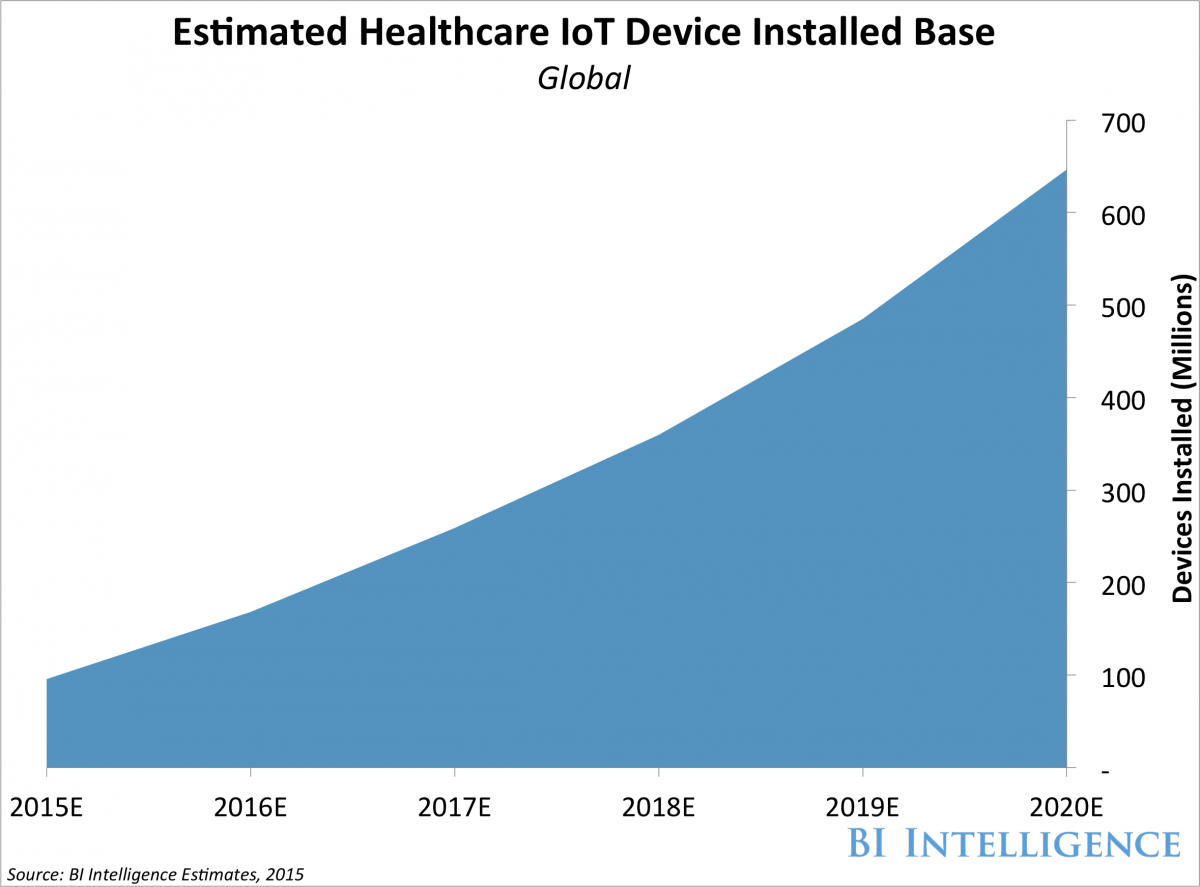How is IoT changing the face of healthcare?
The Internet of Things is about to transform the way we live and work. And if it reaches its fullest potential, it will fundamentally change every aspect of our lives. That sort of disruption is evident in the healthcare sector, where the pen and paper has been the primary means of recording patient information for decades. But now, healthcare technology is changing in major ways.
Author: Andrew Meola, Business Insider
Healthcare applications now let patients schedule their appointments without the need to call a doctor's office and wait for a receptionist. Healthcare information technology lets doctors carry information with them anywhere they go through apps on their smartphones.
And this increasing connectivity shows no signs of slowing down. In fact, it's only accelerating.
BI Intelligence, Business Insider's premium research service, forecasts that the installed base of healthcare IoT devices (not including wearable devices such as fitness trackers) will grow from approximately 95 million in 2015 to 646 million in 2020.
In short, more connection means more accessible data and better healthcare for patients. Below, we've laid out a roadmap of healthcare's past, present, and future thanks to the IoT.
The evolution of healthcare technology
Arguably the greatest technological leap forward in the last several decades has been the growth of electronic health records, or EHRs. In 2009, a mere 16% of US hospitals were using an EHR, but that figure soared to approximately 80% in 2013, according to Becker's Hospital Review. Previously, hospitals had multiple systems that handled different functions, but EHRs roll all of those into a single system.
Then we have portal technology, which lets patients take a more active role in their own health and well being. Portals let users log on to the healthcare provider's websites to access their medical records, download forms, and prepare for appointments.
Finally, home monitoring systems allow patients and doctors to keep track of an individual's health when not in the doctor's office to prevent unnecessary and costly trips to sit down with a physician.
How IoT will revolutionise the healthcare industry
The IoT is slowly starting to weave into healthcare on both the doctor and patient fronts. Ultrasounds, thermometers, glucose monitors, electrocardiograms and more are all starting to become connected and letting patients track their health. This is crucial for those situations that require follow-up appointments with doctors.
Multiple hospitals have started to utilise smart beds, which can sense the presence of a patient and automatically adjust itself to the correct angle and pressure to provide proper support without the need for a nurse to intervene.
The IoT could also help transform patient care at home. Sadly, some patients don't take their medication in appropriate doses or at the correct times. Smart medication dispensers in the home could automatically upload information to the cloud and alert doctors when patients don't take their medicine. More broadly, this type of technology could let doctors know of any potentially dangerous patient behavior.
Healthcare IoT companies leading the way
Several well-known companies are leading the pack when it comes to the IoT and healthcare. Grand View Research recently released a report on this sector and noted that a handful of key players dominate the industry. These companies are clamoring to gain a major slice of the pie by developing products for specific medical applications, increasing collaborative research and development, and acquiring new startups.
Microsoft, for example, has built its Microsoft Azure cloud platform to facilitate cloud-based delivery of multiple healthcare services. IBM, meanwhile, has announced it would invest approximately $3m, in the IoT, and undoubtedly some of that money would go toward the healthcare sector.
But dozens of startups are breaking into this space, such as: ConnectedHealth, EarlySense, Proteus Digital Health, Qardio, Whoop, ThalmicLabs, Kinsa, Neurovigil, Athos, Atlas, Beddit, Pristine, Sproutling, Sensoria, Lark, Thync, NeuroSky, AliveCor, Awarepoint, BioSerenity, iRhythm, BL Healthcare, Sotera Wireless and Voluntis.











